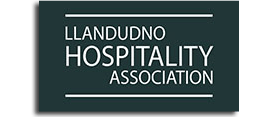Latest Guidance
dunoonhotel • 31 July 2021
Guidance for the lifting of restrictions

Guidance on the lifting of safety measures
Hospitality (pubs, bars, cafés, restaurants and licensed venues)
The hospitality sector is a vital part of the Welsh economy and this document reflects the mitigations and reasonable measures that businesses in the sector are expected to consider when re-opening and in operating to protect their staff, customers and others.
This Guidance is issued under regulation 18 of the Health Protection (Coronavirus Restrictions) (No 5) (Wales) Regulations 2020 (Guidance about taking reasonable measures). All those who are responsible for providing hospitality service must have regard to this Guidance. These mitigations and measures are part of the wider Guidance for the Tourism and Hospitality Businesses and the UK Hospitality Cymru Guidance. It is also important to keep up to date with the legal requirements applicable from time to time, depending on the Alert Level in Wales, as set out in Health Protection (Coronavirus Restrictions) (No 5) (Wales) Regulations 2020 (as amended).
It is a well-known fact that indoor settings present a higher risk than outdoor settings for the transmission of COVID-19. Therefore, when indoors, additional measures are necessary to minimise the risk of transmission. These will include
implementation of protective policies to prevent over-occupancy, ensuring adequate ventilation, requiring 2m social distancing indoors, enforcing the use of face coverings for staff , ensuring the wearing of face coverings by customers when not consuming food or drink at their table, and providing a managed table service. The collection of accurate contact information to facilitate tracing and testing of contacts in the event of positive cases being identified continues to apply to both indoor and outdoor settings.
This guidance has been produced in consultation with industry stakeholders and applies to hospitality businesses in Wales only. Reference should also be made to the Welsh Government’s web page on current alert levels to see the relevant restrictions and requirements and any transitional arrangements that are put in place, from time to time. The hospitality sector should place safety as a priority at all times and recognise that at the current time going to a pub, bar, café or restaurant should not feel the same as it used to. We have a duty of care to each other and to the businesses we all enjoy and that others rely on for their livelihoods. The sector is open – let’s keep it that way by doing our bit to keep coronavirus under control and to keep Wales safe.
Reasonable measures to minimise risks – general summary
There is a requirement for businesses to minimise the risk of exposure to coronavirus. For the purposes of minimising the risk of exposure to coronavirus at regulated premises, or the spread of coronavirus by those who have been at regulated premises, the responsible person must take the following steps:
Step 1 - Undertake a specific assessment of the risk of exposure to coronavirus at the premises, and in doing so consult persons working on the premises or representatives of those persons.
Step 2 - Provide information to those entering or working at the premises about how to minimise the risk of exposure to coronavirus, in particular the responsible person must provide information to those working at the premises about their risk of exposure to coronavirus identified under the assessment undertaken under Step 1, and the measures to be taken under Step 3 and Step 4 to minimise the risk.
Step 3 - Take all reasonable measures to ensure:
(a) that a distance of 2 metres is maintained between any persons indoors on the premises, except between members of a permitted group;
(b) where persons are required to wait indoors to enter the premises, that a distance of 2 metres is maintained between them, except between members of a permitted group.
Step 4 - Take reasonable measures to mitigate the risk of exposure to coronavirus that arises where persons gather on the premises, such as:
(a) seeking to prevent the following persons from being present at the premises—
(i) any person who has tested positive for coronavirus in the previous 10 days,
(ii) any person who has had close contact in the previous 10 days with any person who has tested positive for coronavirus,
(iii) any person experiencing symptoms associated with COVID-19;
(b) ensuring that persons gathering at the premises gather outdoors where this is practicable;
(c) limiting close physical interaction between persons on the premises, in particular face–to-face interaction, for example by—
(i) changing the layout of premises including the location of furniture and workstations;
(ii) controlling the use of entrances, passageways, stairs and lifts;
(iii) controlling the use of shared facilities such as toilets and kitchens;
(iv) otherwise controlling the use of, or access to, any other part of the premises;
(v) installing barriers or screens;
(d) limiting the duration of time for which persons may be present on the premises;
(e) seeking to ensure that the premises are well ventilated;
(f) maintaining good hygiene on the premises;
(g) providing or requiring use of personal protective equipment.
In determining the extent to which it is reasonable to take a particular measure under Step 3, regard may be had to measures taken under Step 4 to mitigate the risk of exposure to coronavirus that arises when any person is within a distance of 2 metres of another person.
Measures that may be taken under Steps 1 – 4 include— (a) not carrying out certain activities;
(b) closing a part of the premises;
(c) allowing and enabling a person who ordinarily works at the premises to isolate due to testing positive for coronavirus or having had close contact with somebody who has tested positive, for a period—
(i) recommended in guidance published by the Welsh Ministers;
(ii) specified in a notification given to the person by a contact tracer;
(d) collecting contact information from each person at the premises and retaining it for 21 days for the purpose of providing it to any of the following, upon their request—
(i) the Welsh Ministers;
(ii) a contact tracer;
(e) taking reasonable measures to ensure that such contact information is correct.
Mitigations and reasonable measures for hospitality businesses
Risk assessments
1. Each business (the responsible person for the regulated premises) must undertake, and have available on site, a specific Covid-19 risk assessment which should be updated to align to the latest restrictions and requirements on operating both indoors and outdoors. Staff, or their representatives, must be consulted on the risk assessment. In addition, business operators will need to take full account of their requirement to keep staff safe at work and offer individual risk assessments for their members of staff dependent on the roles they play and whether they are at increased risk or clinically extremely vulnerable. Employers should appoint and engage with a staff representative, and trade union representative wherever possible, for all employee-related Covid19 issues.
2. Businesses should designate a named member (or members) of staff per shift (depending on number of covers) during all opening hours to monitor Covid-19 hygiene and enforcement of social distancing/safety protocols – acting as ‘Covid Monitors’.
3. All businesses should, where possible, deploy fixed teams of staff to reduce interactivity between team members including setting a maximum staff number, or space per staff member, in indoor spaces such as kitchens to allow for social distancing whilst taking into account the cramped nature of many kitchens. Businesses should also encourage new ways of working, adapting shift patterns and menus to significantly reduce the number of people working in restricted spaces at any one time.
Information and communication
4. Businesses must provide information to those entering or working at the premises about how to minimise the risk of exposure to coronavirus. All businesses must ensure customers are fully aware of their responsibilities for observing social distancing when indoors and all other applicable Covid-19 safety measures using clear signage and other visual communications (e.g. posters or information boards). A suite of consumer facing materials is available to support businesses. Risk assessments may identify social distancing as a reasonable measure to be employed in outdoor areas, although no longer mandated. If this is the case, the business must clearly communicate this requirement to staff and customers. Businesses should also be aware that staff and members of the public may wish to continue to socially distance outdoors for their own private reasons. Thought should therefore given in relation to outdoor seating etc to enable people to exercise their personal choice in this regard.
5. Businesses must provide information to those working at the premises about their specific risks of exposure to coronavirus as identified under the risk assessment undertaken by them, and the measures to be taken to minimise the risks. It is recommended that businesses should make their specific Covid-19 risk
assessment publicly available for staff and customers. Risk assessments should be regularly updated in line with the latest legal requirements and guidance.
6. All businesses should set and display the maximum capacity for inside the premises and put in place measures for managing the maximum capacity set. This should form part of the specific Covid-19 risk assessment. Although the requirement for social distancing outdoors has been removed from the regulations, businesses are advised to continue to exercise caution in relation to the capacity of outdoor areas. The risk assessment may identify social distancing outdoors as a reasonable measure to be employed at the premises, in which case, this requirement must be clearly communicated to staff and customers.
Social distancing in indoor premises
7. Businesses must take all reasonable measures to ensure that a distance of 2 metres is maintained between persons when inside the premises, except between people from the same household or permitted groups of up to 6 people from 6 different households. This means that businesses must ensure that social distancing is maintained between separate permitted groups or permitted households when indoors. Where it is not considered reasonably possible or viable to maintain 2 metres of space between tables, businesses may introduce other reasonable measures to minimise the risk of exposure to coronavirus e.g. erecting screens or partitions between tables and maximising ventilation.
8. A maximum number of 6 people from 6 different households can meet indoors in regulated premises. This means that up to 6 people (not including children aged under 11 from any of the households gathering or a person who is caring for someone participating in such a gathering) from 6 different households can meet indoors in hospitality premises. People from the same household or extended household count towards the total number of 6. Where a single household (not an extended household) contains more than 6 people they can all meet together indoors in hospitality premises provided all those present reside at the same address.
9. There is no limit on the number of people meeting outdoors and there is no longer any requirement to maintain 2 metres social distancing outdoors. However, maintaining the safety of staff and customers both indoors and outside should be considered within the context of the overall Covid-19 risk assessment for the premises. The risk assessment may identify social distancing as a reasonable measure to be applied outdoors, in which case this requirement should be communicated clearly to staff and customers In addition, although there is no longer a mandation for outdoors, staff and customers may choose to continue to socially distance for their own private reasons. Thought should therefore be given to outdoor seating etc to allow people to exercise their personal choice.
Cleaning
10. Businesses are required to undertake a deep clean before any re-opening after a
prolonged period of closure and to take account of potential legionella issues (where mains water has been turned off since the close of the premises at lockdown, when it is reconnected it will need running through to flush away any microbiological or chemical residues built up while the water supply was disconnected). There should be thorough and regular cleaning of high contact touch points, toilets, tables etc throughout the course of the service in line with the risk assessed cleaning regime for the premises. All businesses should implement rigorous cleaning and hygiene practices in between bookings and as required during service, to keep their premises safe. Particular attention should be given to shared services, such as washrooms and toilets.
Operating outdoors and improving ventilation indoors
11. If outdoor spaces being utilised are closed on all sides and roof/ceiling they are considered and treated as indoors. In contrast, if they are outside and open-sided
(more than 50% open as per the Smoke-Free Premises and Vehicles (Wales) Regulations 2020) they are to be considered and treated as outdoors. It is imperative that if marquees or similar are to be used they need to be part of the premises’ risk assessments included in cleaning regimes, and monitored so as to ensure compliance with social distancing requirements.
12. Indoors, all businesses should maximise ventilation and enhance airflow throughout the premises, including front of house, staff areas and kitchen areas, by opening windows and propping open internal doors (but not fire doors) where possible.
Controlling entry
13. In premises authorised to sell or supply alcohol (licensed premises) for consumption on the premises only, there must be controlled entry in respect of the sale or supply of food or drink for consumption indoors and outdoors. Controlled entry includes pre-booking wherever possible with details of all members of the group taken as part of the booking and verified on arrival. “Walkups” should be kept to a minimum and subject to access through a controlled entry point with provision and verification of names of all members of the group at that point. Any person working indoors to serve customers and customers themselves when entering must wear face coverings whilst in the indoor public space unless they are under 11 or have an exemption. Reasonable measures to maintain 2 metres social distancing must remain in place indoors (except between permitted households and permitted groups (see above)) and outdoors if the risk assessment has identified this as a reasonable measure, and there must be signage at the entry point to advise of the face covering and distancing requirements. Customers can walk through indoor spaces to access outdoor spaces, but should adhere to social distancing and face covering requirements when doing so.
14. All premises must ensure that where people are required to wait indoors to enter the premises that a distance of 2 metres is maintained, except between members of the same household or a carer and the person assisted by the carer or between members of a permitted group of up to 6 people. Businesses should implement one-way systems indoors (and outdoors where identified as necessaryApp), where the building allows, and subject to maintaining access for people living with disabilities in accordance with the Equality Act 2010.
15. A reasonable measure is to consider asking customers if they have had symptoms of Coronavirus or a positive test within the previous 10 days, or been in close contact in the previous 10 days with a positive case and refusing entry if that is the case.
16. Businesses should consider measures to limit the duration of time for which persons may be present inside the premises. This may be more appropriate in some settings more than others and should be balanced against wider consequences, such as encouraging customers to visit multiple premises and potentially spreading the virus e.g. pub crawls.
17. Access to toilets will be allowed to customers and staff only, subject to adherence to cleaning and other protocols aimed at protecting staff and customers. See guidance on the safe management of toilets used by the public.
Collecting contact information
18. In all hospitality premises, licensed and non-licensed, a reasonable measure is to collect contact information from each person (including staff and all visitors) at the premises to assist with contact tracing should this be required. This means collecting the person’s name and telephone number, date of visit and arrival and departure time. This information should be retained for 21 days. This can either be done on paper or electronically but should adhere to General Data Protection Regulations (GDPR). More information on keeping records of staff, customers and visitors is available. It is a reasonable measure to ensure the accuracy of the contact information provided. Where there is a concern re the data supplied e.g. false information being given or large indoor groups claiming to be a single household, businesses should make reasonable efforts to request verification e.g. from a driving licence. The NHS COVID-19 app does not substitute the above requirement and is not mandated.
19. Where the data of children may be collected (for example where a 16 year old person attends the premises) consideration must be given to any associated risk in retaining this information. Further information on these risks can be found on the ICO website. After reading this guidance, a premises might decide that it’s more appropriate for their responsible adult’s contact details to be noted against their children.
Table service
20. Managed table service must remain in place both indoors and outside to minimise the movement of customers within the premises and to avoid customers congregating at the bar or counter.
21. Licensed premises are encouraged to use smartphone apps for customers to pay for food to minimise contact between staff and customers. The use of apps or other communications devices is recommended, to reduce contact with customers, including options for menus, ordering, billing and contactless payment.
22. In the absence of the necessary infrastructure to take payment at the table, a customer may pay at the bar or counter inside, where social distancing and wearing a face covering should be maintained. In unlicensed premises customers can order and pay at the counter subject to maintaining social distancing, but should consume food and drink at their tables.
Face coverings
23. Staff should wear face coverings indoors at all times unless they have an exemption from doing so. Staff should be encouraged to temporarily remove their face coverings, whilst maintaining social distance, if required to assist someone who relies on lip reading to communicate.
24. When entering the premises, moving about indoors, participating in any shared activities, to walk through to the outdoor area or to go to the toilets, customers must always ensure they are wearing face coverings (unless they are under 11 or have a reasonable excuse not to wear a face covering, more information is set out in the face coverings guidance for the public and in the Health Protection (Coronavirus Restrictions) (No 5) (Wales) Regulations 2020 (as amended from time to time)). Customers may remove their face coverings indoors when seated in a designated area for the immediate consumption of food and/or drink. They must replace their face coverings when they leave this designated area. To safeguard staff and customers, businesses may wish to encourage customers to wear face coverings at all times outdoors, except when seated at a table, however this is not mandatory. If the risk assessment identifies the wearing of face coverings outdoors as a reasonable measure, this requirement must be clearly communicated to staff and customers.
Reducing noise exposure
25. Loud noises, which will require people to raise their voices or shout and therefore increase aerosol spread, should be avoided indoors. Businesses should ensure that TV broadcasts and recorded music are kept at background level. Live performances can take place subject to businesses undertaking a risk assessment for the venue. To maintain social distancing and to prevent the increase of aerosol spread, dancing, communal singing and chanting should be discouraged. There is more flexibility outdoors with no limit on the number of people meeting outdoors and no requirement to maintain 2 metres social
distancing. However, maintaining the safety of staff and customers when outdoors should be considered within the context of the risk assessment the business must undertake. If the risk assessment identifies social distancing as a reasonable measure to be employed outdoors, this requirement must be clearly communicated to staff and customers. In addition, staff and customers may wish to continue to socially distance for private reasons, and for this reason, businesses should consider outdoor seating arrangements etc to allow people to distance if they so wish.
Shared activities
26. Activities (e.g. skittles, darts, pool and other ‘pub games’) are allowed indoors if undertaken by a permitted group of up to 6 people in a permitted gathering or by a single household. There are no such limits outdoors, although caution would still be advised in relation to mixing of large numbers of people. Businesses must prohibit shared activities indoors that would entail people breaching the rules on gatherings or make social distancing impracticable. Businesses are under a duty to take reasonable measures to minimise the risk of exposure to the virus, for example consideration should be given to cleaning of equipment such as pool cues between groups using them. Other activities which may be carried out safely which do not prevent social distancing may be considered on their own merits. For example, a quiz maintaining separate groups and complying with the rules on gatherings and social distancing (for example where each group collects and retains their own quiz sheet) may be permissible. If the activity is an “event”, as defined in the regulations, then there must be compliance with the rules on events.
Buffet service
27. Where businesses provide food on a buffet basis, food should be physically put on the plate by staff rather than customers. In order to minimise contact with high touch utensils, customers should not serve themselves from the buffet. Customers may select food from the buffet, be served from the buffet zone and return to where they are seated, provided a distance of 2 metres is maintained between any persons at the buffet (except between the permitted group of 6 or members of the same household, or carer and the person assisted by the carer). When the customer selects food from the buffet, a face covering must be worn to approach the buffet and hand sanitiser used. Rigorous cleaning regimes should be maintained around the buffet area.
Takeaway service
28. Businesses offering takeaway as well as seated services must follow face coverings and social distancing rules. For example, customers collecting takeaways must be socially distanced from other customers seated at tables, appropriate queueing and waiting procedures should be put in place. Those collecting food or drink must wear face coverings if they enter the building.
Regulated gatherings and regulated events
29. Regulated gatherings or regulated events are those that are organised by a business, which must undertake a risk assessment and will need to comply with regulation 16 (reasonable measures to minimise the risk of exposure to and spread of coronavirus). Regulated gatherings and regulated events will vary in size (subject to the maximum permitted numbers in the regulations) and the capacity for different gatherings or events will be determined by the size of the premises, risk assessments and the reasonable measures which includes ensuring social distancing can be maintained indoors (and outdoors if so identified as a reasonable measure). Persons attending regulated gatherings or events at licensed premises are not required to be seated when ordering or consuming food or drink.
30. Hospitality venues seeking to hold a regulated gathering or a regulated event must carry out a risk assessment and meet the requirements in the regulations to take reasonable measures to minimise the risk of exposure to coronavirus.
31. The maximum number of people who may attend regulated gatherings or events indoors is either 200 people if standing or 1,000 people if seated, except where it is a wedding, civil partnership reception or wake, where the numbers permitted to attend a particular event of this type will be determined by the size of the venue, the risk assessment and the reasonable measures, which includes ensuring social distancing can be maintained indoors.
Useful links:
Guidance for tourism and hospitality businesses: coronavirus https://gov.wales/guidance-for-tourism-and-hospitality-businessescoronavirus
UK Hospitality Cymru Guidance https://www.ukhospitality.org.uk/page/WalesGuidance
Guidance for weddings and civil partnerships: receptions and celebration events. https://gov.wales/guidance-weddings-and-civil-partnerships-receptions-andcelebration-events-html
Guidance for Events
https://gov.wales/creating-covid-aware-events-html
Show More



